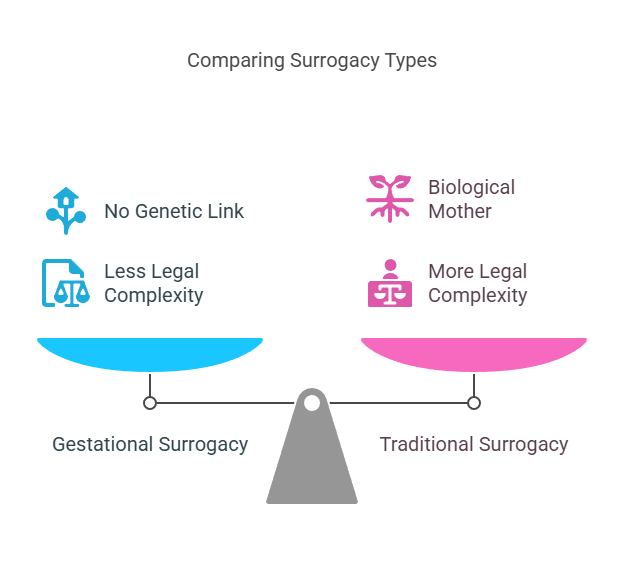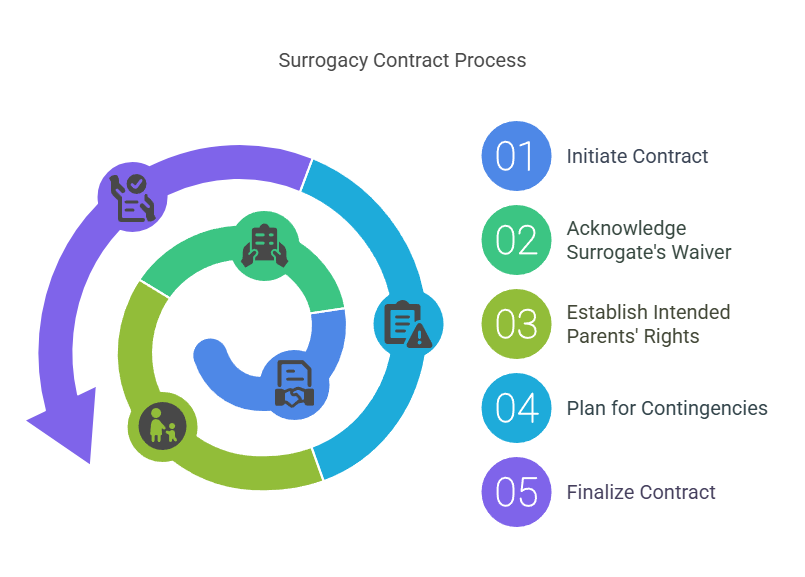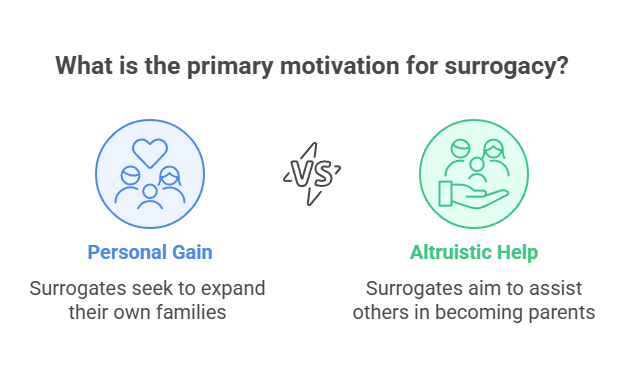Short answer:
No, a surrogate cannot keep the baby — at least not without serious legal consequences. The baby belongs to the intended parents, and legal agreements made before pregnancy are designed to protect everyone involved.
Let’s break it down in more detail:
🍼 1. What Surrogacy Really Means
Surrogacy is when a woman carries a baby for someone else. There are two main types:
- Gestational Surrogacy – The surrogate has no genetic link to the baby. An embryo created using the intended parents’ (or donors’) egg and sperm is implanted in her uterus.
- Traditional Surrogacy – The surrogate uses her own egg, making her the biological mother. This form is rare and legally more complicated.
In both cases, surrogates agree ahead of time that they will not be the child’s legal parent.

📜 2. The Legal Agreements Make It Clear
Before any pregnancy starts, all parties sign a legally binding surrogacy contract. This contract includes:
- Acknowledgment that the surrogate waives parental rights.
- Agreement that the intended parents are the baby’s legal parents.
- Plans for what happens in case of emergencies, disputes, or unexpected situations.
The goal is to prevent confusion or heartbreak later on.
More: Understanding Surrogacy Contracts: Protecting the Rights of All Parties

⚖️ 3. What If a Surrogate Changes Her Mind?
This is a common fear — but it’s very rare in properly managed surrogacy journeys. In most places:
- Surrogates cannot claim parental rights, especially in gestational surrogacy.
- If a surrogate tried to keep the baby, it would likely result in a legal battle — and courts almost always side with the intended parents.
Surrogates are carefully screened to make sure they understand the emotional side of the process.

💛 4. Why Most Surrogates Don’t Want to Keep the Baby
Surrogates don’t go into this process to “get a baby.” They do it to help someone else become a parent.
Most surrogates:
- Already have children of their own.
- Are done building their own families.
- Feel fulfilled helping others.
They understand from day one that the baby is not theirs.

🌍 5. It Depends on Where You Live
Surrogacy laws vary by country and state. Some places (like California or Ukraine) have very clear laws that protect intended parents. Others may have outdated or unclear regulations.
That’s why working with a professional agency and legal team is essential — it helps everyone feel protected and keeps the journey smooth.
📝 Final Thoughts
Surrogacy is built on trust, clear expectations, and legal protection. Once the pregnancy begins, the baby legally belongs to the intended parents — not the surrogate.
If you’re considering surrogacy, make sure you:
- Work with professionals.
- Understand the emotional and legal journey.
- Know that keeping the baby is not an option — and not the goal.




